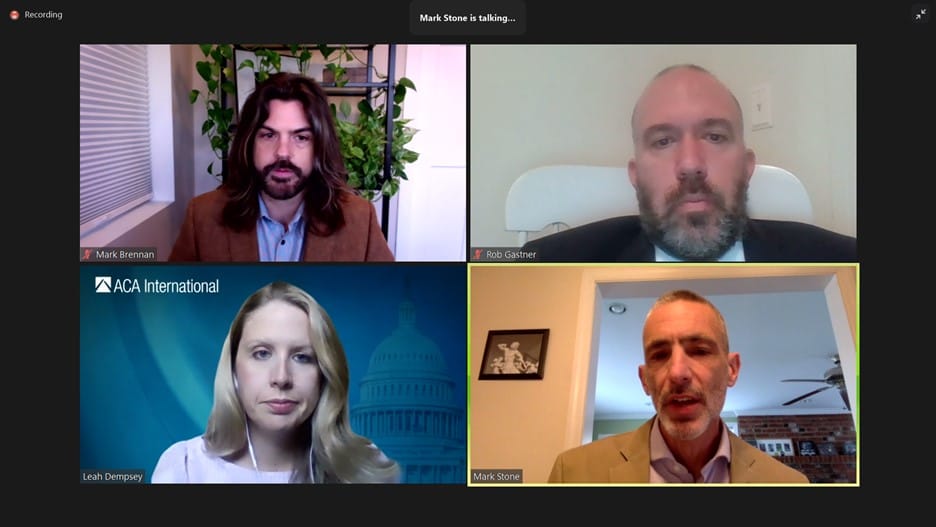At Federal Bar Event About Telemarketing, Autodialers Seek to Find Friends at Supreme Court
December 7, 2020 – The issue of autodialed telephone calls, including robocalls, will be back on the agenda of the Supreme Court on Tuesday for the second time in seven months. In oral arguments in Facebook, Inc. v. Duguid, the court intends to resolve a split among the circuit courts as to whether

December 7, 2020 – The issue of autodialed telephone calls, including robocalls, will be back on the agenda of the Supreme Court on Tuesday for the second time in seven months.
In oral arguments in Facebook, Inc. v. Duguid, the court intends to resolve a split among the circuit courts as to whether the Telephone Consumer Protection Act applies broadly to calls made on many types of dialing equipment – or is limited to calls made on equipment from the early 1990s.
If Facebook prevails, TCPA litigation is likely to be significantly curtailed. The matter builds upon the July 6, 2020, decision in Barr v. American Association of Political Consultants Inc. in which, by a 7-2 vote, the court said that because the TCPA’s exception for collecting government debts violated the First Amendment, the TCPA was preserved with the exception excised.
See “Supreme Court Hears Oral Arguments About Robocalls Over the Telephone,” Broadband Breakfast, May 6, 2020.
Discussion about limits on the number of automatically dialed phone calls
Panelists at a November 19 event of the Federal Communications Bar Association generally came down on the side of the autodialers: They agreed that there should not be a broad frequency limit on calls.
This limit was suggested in a recent proposed regulation of the Federal Communications Commission that was intended to clarify some of the many and convoluted exemptions of the TCPA.
Leah Dempsey, senior counsel and vice president federal affairs of ACA International – which represents collection companies – said her members advocating against any limits on the amounts of calls.
Because of restrictions by other regulatory agencies overseeing telemarkers, having a broad frequency limit would lead to unintended consequences, she said.
Mark Stone, FCC deputy bureau chief of the Consumer and Governmental Affairs Bureau, said he agreed: The quantity of calls was not “probative as to whether or not it [was] an autodialer.”
The TRACED Act is causing problems for collection company phone calls
Dempsey also mentioned some challenges the TRACED Act poses for a company’s ability to make calls subject to the TCPA. A lot of the industry has been seeing their calls blocked, and according to an industry survey, a lot of the calls were being blocked by either the carrier or a third party. She suggested that if callers were going to be notified of blocks to their calls notification would need to be timely—ideally within 24 hours.
She explained that sometimes legitimate calls aren’t being signed because they haven’t implemented the STIR/SHAKEN framework for cryptographically signing computer-generating phone calls. Many problems also arise from third party call labeling services partnering with carriers.
Finally, Panelists also talked about the reassigned numbers database. Ten years after its establishment, the issue is still a mess, said panelists.
Under TCPA, callers need prior express consent under the called party. There are several items of ambiguity here, such as what “call party” means under TCPA.
Additionally, when callers perform their due diligence to get consent but then find that by the time they place the call, the phone number they’ve called is no longer assigned to the same consumer. There’s been debate about who is liable at that point, panelists explained.
Of the courts that have examined this issue, most have decided that it is the caller’s responsibility to ensure the call party was the correct one. However, the D.C. Circuit Court disagreed, creating a conflict to be resolved by the Supreme Court.
Panelists at the FCBA event supported the FCC’s new national reassigned numbers database designed to help callers compile the data they need to avoid making erroneous calls. That said, Dempsey said if the database doesn’t work, she hopes to get more clarity on the issue overall.
Hogan Lovells Partner Mark Brennan and Eckert Seamans Cherin and Mellott LLC Partner Robert Gastner moderated the event.








